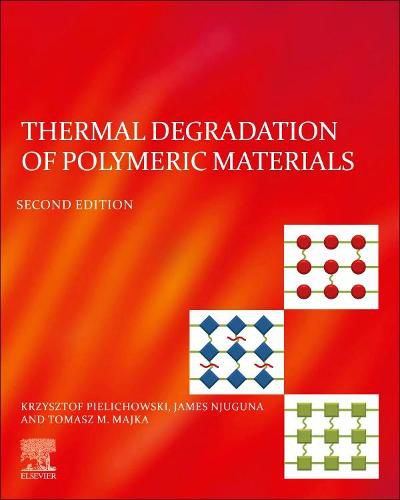Readings Newsletter
Become a Readings Member to make your shopping experience even easier.
Sign in or sign up for free!
You’re not far away from qualifying for FREE standard shipping within Australia
You’ve qualified for FREE standard shipping within Australia
The cart is loading…






Thermal Degradation of Polymeric Materials, Second Edition offers a wealth of information for polymer researchers and processors who require a thorough understanding of the implications of thermal degradation on materials and product performance. Sections cover thermal degradation mechanisms and kinetics, as well as various techniques, such as thermogravimetry in combination with mass spectroscopy and infrared spectrometry to investigate thermal decomposition routes. Other chapters focus on polymers and copolymers, including polyolefins, styrene polymers, polyvinyl chloride, polyamides, polyurethanes, polyesters, polyacrylates, natural polymers, inorganic polymers, high temperature-resistant and conducting polymers, blends, organic-inorganic hybrid materials, nanocomposites, and biocomposites.
Finally, other key considerations such as recycling of polymers by thermal degradation, thermal degradation during processing, and modelling, are discussed in detail.
$9.00 standard shipping within Australia
FREE standard shipping within Australia for orders over $100.00
Express & International shipping calculated at checkout
Thermal Degradation of Polymeric Materials, Second Edition offers a wealth of information for polymer researchers and processors who require a thorough understanding of the implications of thermal degradation on materials and product performance. Sections cover thermal degradation mechanisms and kinetics, as well as various techniques, such as thermogravimetry in combination with mass spectroscopy and infrared spectrometry to investigate thermal decomposition routes. Other chapters focus on polymers and copolymers, including polyolefins, styrene polymers, polyvinyl chloride, polyamides, polyurethanes, polyesters, polyacrylates, natural polymers, inorganic polymers, high temperature-resistant and conducting polymers, blends, organic-inorganic hybrid materials, nanocomposites, and biocomposites.
Finally, other key considerations such as recycling of polymers by thermal degradation, thermal degradation during processing, and modelling, are discussed in detail.